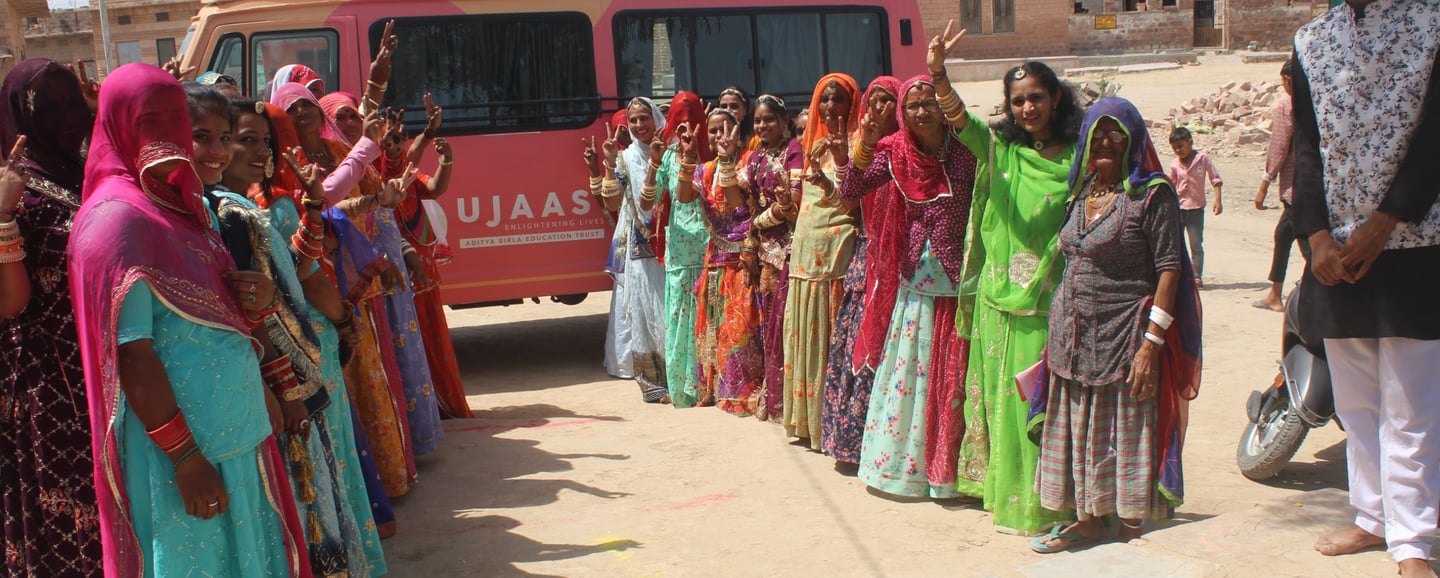UJAAS – Menstrual Hygiene Awareness
Ujaas, a menstrual hygiene awareness initiative, is a collaborative outreach program carried out by Anvarat in partnership with the Ujaas initiative. The program aimed to break menstrual taboos and spread awareness across rural and urban communities in Gujarat, Rajasthan, Haryana, and Delhi. By engaging people through street plays, creative competitions, and one-on-one conversations, the program created safe spaces for dialogue around menstruation—an issue often cloaked in silence and stigma.


10+
2000+
Girls
Villages
Project Overview
As part of the outreach, sanitary pads were distributed to all participants, ensuring that awareness was accompanied by access to basic menstrual hygiene products. The campaign traveled through villages, labor colonies, tribal regions, and slums, reaching hundreds of women and adolescent girls.
The impact was deeply transformative. The program empowered women from Adivasi, laborer, and slum communities by improving their understanding of menstrual health and hygiene. It also challenged restrictive practices and myths around menstruation, encouraging more open, informed, and healthier conversations around the subject.
The Ujaas program was designed not just to inform but to engage and empower. By combining education, accessibility, and open communication, the initiative tackled both the practical and cultural challenges surrounding menstrual hygiene. Below are the major components that shaped the program’s impact:
Key Components:
Interactive Competitions for Awareness: Creative contests like slogan-writing, poster-making, and quizzes were organized, especially for young girls. These activities made the learning process fun and participatory, encouraging girls to think about menstrual health in an open and engaging environment.
Counseling Sessions: Trained facilitators held private discussions with women and adolescent girls, offering guidance on hygiene, health concerns, and emotional wellbeing. These sessions helped dispel myths and allowed individuals to voice their questions without fear or embarrassment.
Distribution of Sanitary Pads: Each participant received a packet of sanitary pads, ensuring the program translated awareness into action. This access to hygiene products promoted safer menstrual practices and highlighted the importance of menstrual health as a basic necessity.
Addressing Social Taboos and Restrictions: In regions where menstrual restrictions were deeply rooted, the program encouraged open dialogue on traditional practices. Facilitators gently questioned these customs, encouraging community members to adopt more inclusive and healthier attitudes toward menstruation.






